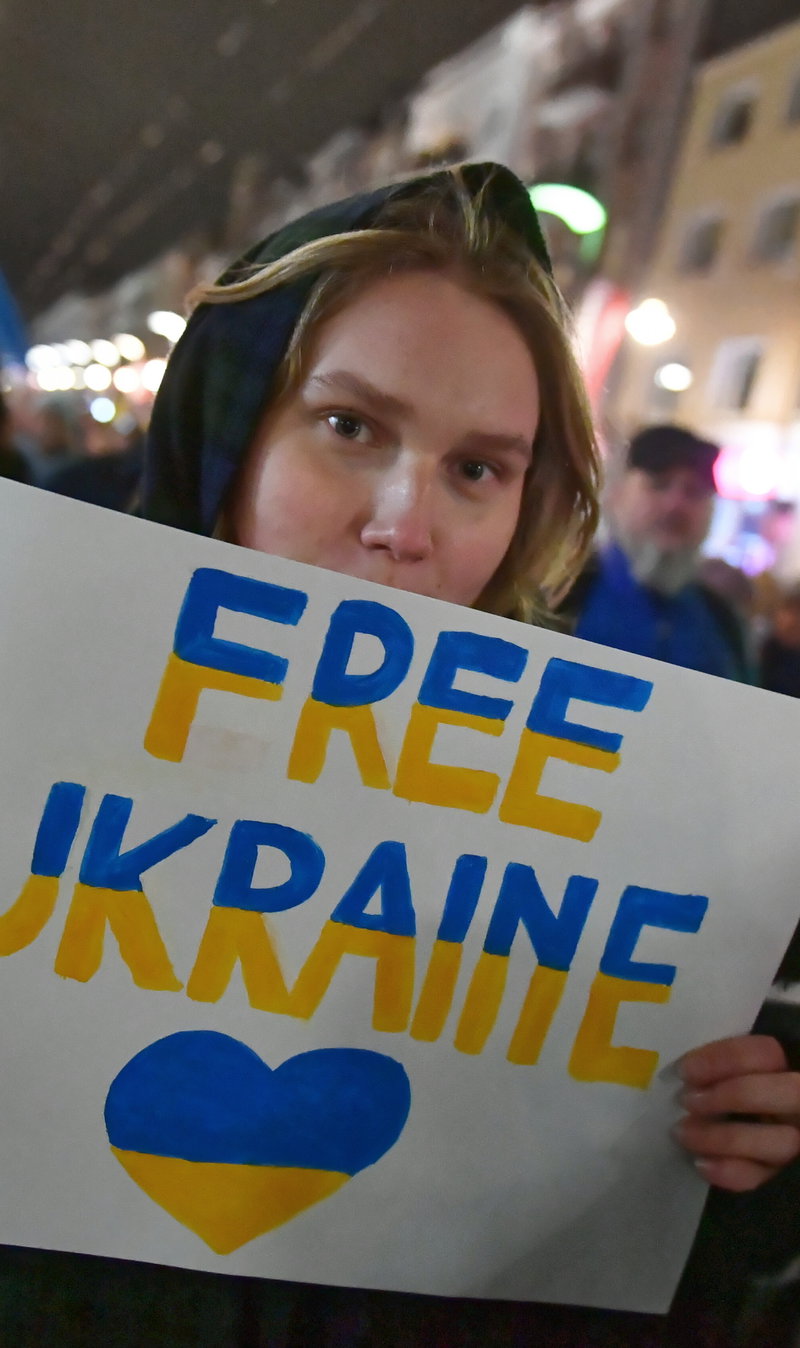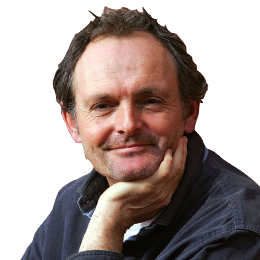HEADING FOR THE HILLS
UKRAINE’S BLOOD LANDS
Our Catalan farmhouse creaked in the wind like a galleon on the high seas as I climbed the wooden stairs into the cold loft. I was searching through old files for a cutting from 1991. The topic was the blood lands of Ukraine.
My article 31 years ago sparked outrage, caught the positive attention of Ukrainian communities around the world and prompted the one and only time I have been officially invited to visit a country.
It was three months after Ukraine’s declaration of independence following the political, economic and ethnic disintegration within the Soviet Union. I had just so happened to be on the West/East Germany border exactly two years earlier when the wall and fences and Soviet-allied pack of cards came tumbling down. It was a tumultuous time. What I wrote then prompted the family of one Ukrainian veteran to contact me.
What followed was a painful history lesson, of shattered lives and unthinkable destruction. Ukraine has a tragic history of contention. There had been a catalogue of atrocities, and it needed explaining. Why? In the UK at that time the hunt was on (at long last) for Nazi war criminals. Former SS soldiers had been shipped to the UK as prisoners of war in 1947. It made the headlines, short and simple. There were among their number some appalling, evil men. No question. Nobody doubted it, including me. I still don’t.
But nothing is ever simple.
I published a grainy photograph of an SS soldier, Petro. I told the stories of two lives. The headline was “The case for the defence”. There were the guilty but also the innocent. The outcry was swift, but short lived. Did you read it, all of it, I asked? The vitriol stopped.
Petro and Stephan, from the forever-contested lands of the Ukrainian region of eastern Galicia (yes, another Galicia), were then retired farm labourers living out their days in English villages far away from their past. Suddenly their histories were being questioned, by family, neighbours, authorities. Yes, they were in a Galician unit of the Waffen military SS, enough information for rapid conclusions and for their worlds to cave in once again.
I went deeper, researched, interviewed pieced together and told their stories and that of their people, their murdered families, destroyed villages, their defiance and survival.
Ukraine had long wanted self-rule. The Austro-Hungarian Empire had reigned over eastern Galicia until its collapse in 1918. The Ukrainians tried again to establish independence but Poland fought them in a bitter war. Polish rule and control by force lasted until 1939 when the Nazis and Soviets signed a pact and partitioned Poland. Another war front swept west across Petro and Stephan’s homeland. Both men served in the Ukrainian resistance, the UPA.
Hitler’s swift, scorched earth invasion of the USSR in June 1941 brought further destruction and tragedy. It was seen by some survivors as liberation from soviet atrocities, but it was short-lived. The blood-letting began again. Petro fought on in the UPA. Stephan had been taken by the Soviets during their retreat, forced to join the Red Army and survived the desperate defence of Stalingrad. Captured by the Germans, he was taken back to Galicia where, as the war turned, he and Stephan, alongside boys and older men, were forcibly conscripted into a Galician unit of Waffen SS to fight the USSR forces. Once more a war front crossed and decimated their lands and lives. Terrified of Soviet retribution, they somehow made their way west and surrendered to the Allies.
A Belarusian was the first and only person in the United Kingdom to be convicted under the UK’s War Crimes Act 1991. There were, undoubtedly, many more despicable people guilty of atrocities living secretly not only in the UK, but in Spain and across all of Western Europe and the world, war criminals who escaped justice. That was wholly wrong and they should have been found and tried.
What was and still is also wrong is the increasing devaluing of detail coupled with society’s swiftness to certainty, where, as ever, a grain of truth is never enough.
And war? We need such accounts to be reminded that conflict brings nothing to the people but unimaginable horror and grief.


